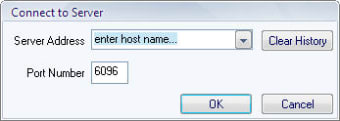

I would rather go for the emulator with the better performance that is less concerned with running the game how it did on the original console. And you're right, I don't necessarily care about accuracy. I understand there are those who want the games to play exactly how they remember, accurately recreating the experience. I think authentic would be the better word for it. Of course I understand what the word accurate means, I just didn't know how it was being applied in this context. Thank you, that is the explanation I was looking for.

If it's your first time playing a game using one of these emulators you'll likely never realize things that are missing or not functioning just right, you don't have an accurate experience to compare it to.Īs long as you're enjoying the games, I tell people to use whatever emulator they like. These emulators are often less demanding on a system (like the Pi), because they don't process lots of the smaller details behind the scenes. Some emulators focus solely on making the games playable and running at the appropriate speed. Accurate emulation can also mean replicating bugs, which can cause a game to crash or fail. Having said all that, it does not mean the emulator is "better" in terms of gameplay or enjoyment from your perspective.

Better accuracy means their better at doing their task of emulating a system. Emulators are considered "better" if they are more "accurate". It's perfectly fine not to care, but the means the emulator isn't accurately representing what the real hardware would have done.

On the other hand if you played through with a less accurate emulator the game may never slow down, and you likely wouldn't notice or even care. I know Megaman X has issues at certain spots, and to me I need those slow downs to happen for it to be an authentic/accurate experience. This can mean things like the game slowing down at certain segments when too many sprites are on the screen. That's perfectly fine, and you're encouraged to use whichever emulator you prefer.įor people that do speed running, or purists, they want an experience that mimics the real machine in every way. If the game runs and you can play it relatively glitch free, you're happy. For many many people, likely yourself included, accuracy doesn't matter. That is what "accurate" emulation means, you would get the same response through the emulator as you would on the actual machine. In this case, it means a game might not be running the exact same as it did on the original hardware. A game running is not always a sign it is being run accurately. The main point is "all details" and "exact". Well first you should look at the definition of the word, if you aren't clear on it. The argument being made is that lr-snes9x is the more "accurate" emulator, but what does that entail? Removed CPUShutdown speedhack, DisableHDMA and Remove POSIX dup and access calls, and rename qword toįixed crash relating to double-closed descriptor. (windows port, unix port and gtk legacy config) (Jonas Quinn) (gocha)įixed BlockInvalidVRAMAccess config file option.
Snes9x vs snes9x 2010 movie#
(zones, OV2)įixed movie snapshot unfreeze inconsistency. (OV2)įixed the problem that echo buffer breaks IPL ROM. New APU timing hack, fixes various games that exhibit (BearOso, zones, OV2)įixed C4 for Mega Man X2's "weapon get" screen. Improved screen interlace and sprite interlace supports. Improved overall timings, now Snes9x can handle events in Unix: Added Xv support and fixed several bugs. (OV2, libretro team)įixed MMC bank register bit 7, restored 64mbit ExLoRom Speed hacks, but also regresses a few speed-hack games. This has the effect of increased accuracy, fewer (LuigiBlood)Ĭhanged the S-SMP core module to one written by byuu. (qwertymodo)Īdded support for BS-X Satellaview memory packs and data (LuigiBlood) Here's the list of what we're up to so far:Īdded support for the MSU-1 coprocessor. One can simply view the current snes9x changelog ( ) to see what has been added/improved.


 0 kommentar(er)
0 kommentar(er)
